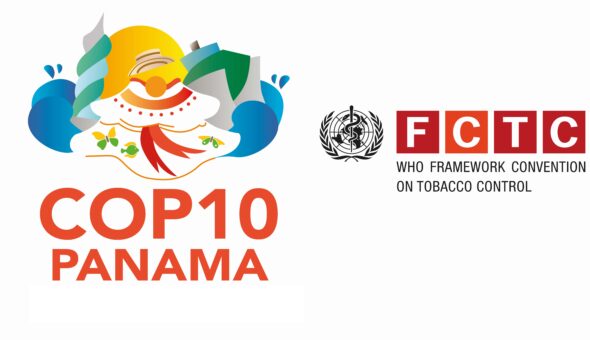As the Westminster lobbying scandals rumble on, Andy Rowell (Group Editor) and Phil Chamberlain (Managing Editor) of Tobacco Tactics at the Tobacco Control Research Group attempt to unravel the complex relationships between the tobacco industry, those who speak for them and the people in power.
Tory sleaze, cronyism, cash for questions … the latest revelations about former British prime minister David Cameron and his work for Greensill, Boris Johnson’s personal text exchanges with billionaire businessman James Dyson, and Matt Hancock’s share interests seem all too familiar. And it’s therefore easy to dismiss them as age-old issues, politicians doing what politicians have always done – rich and powerful people helping out other rich and powerful people. The average voter doesn’t feel listened to anyway – as Rowell and Cave commented, “The opinions of the public are something to be managed rather than sought”. Why should anyone be surprised by these new scandals, or indeed care?
Lobbying - best done when no-one is watching
Companies and their representatives have always lobbied governments in an attempt to ensure the most favourable conditions for their business to thrive. This becomes a concern when the lobbyists, those who pay them and the governments they are seeking to influence are so intricately entangled that it’s difficult to work out where the boundaries lie, or if any boundaries exist at all. This is because corporate lobbyists often work behind closed doors, with unseen access to politicians. And this is particularly concerning when it comes to matters of public health.
The Big Four
The Big Four tobacco companies (British American Tobacco, Imperial Brands, Philip Morris International and Japan Tobacco International) have been running a long-standing campaign against legislation and product restrictions since people first realised the dangers of smoking back in the 1940s. Subsequent legislation has attempted to disentangle the links between tobacco companies and governments, culminating in the Framework Convention on Tobacco Control which came into force in 2005. Signatories to the Framework, of which the UK is one, agree to meet a set of standards aimed at reducing the harms of tobacco to public health. Protecting health policies from the interests of the tobacco industry is one activity identified in the Framework as something of critical importance.
The UK has been relatively successful in meeting the obligations of the Framework, but its standards may be slipping. According to the UK Tobacco Industry Interference Index, which measures the extent of tobacco industry interference in national policy making, the UK slipped from first place in 2018 to fourth in 2019. Could things get worse?
Tobacco and the current Government
The current Government, along with its prime minister, is the most tobacco-friendly administration we’ve seen in decades. It is riddled with ministers and advisors who have taken money from tobacco companies, voted against smoking proposals, promoted messages supportive of the industry, or who are ideologically opposed to public health measures. For example:
- Prime Minister Boris Johnson has taken money directly from tobacco companies; and is one of four ministers to receive donations or hospitality during their careers;
- Johnson has also spoken out against ‘sin taxes’ including on tobacco, and accepted speaking engagements from organisations known to receive tobacco industry funding including the American Enterprise Institute and the Institute of Economic Affairs (IEA);
- Home Secretary Priti Patel is also a regular IEA speaker, and is the most senior politician who has worked for tobacco companies since the former British American Tobacco (BAT) non executive director, Ken Clarke. Patel was a lobbyist for BAT during her work at PR firm Weber Shandwick;
- A number of former and current government and campaign advisors have a history of working for think-tanks which receive tobacco funding or have attacked tobacco policies, including Mark Fullbrook, Chloe Westley, Nerissa Chesterfield and more.
The other Big Four
What is even more concerning to public health and tobacco control advocates is the extent to which links between tobacco companies, policy influencers and politicians are embedded in the broader establishment. Take the other Big Four – the global accounting firms Deloitte, PwC (PricewaterhouseCoopers), KPMG and EY (Ernst & Young).
The Big Four have been employed by the tobacco industry as both auditors and advisors for many decades. While some of the services provided are technocratic, providing help on IT systems for instance, other work concerns issues of public interest, such as helping devise strategies to oppose tobacco control regulations, providing seemingly independent evidence to win public policy debates, and advising on corporate responsibility to shift public perceptions of tobacco companies.
Along with their tobacco company relationships, the Big Four have long been influential voices in politics in Britain and around the world. Their access is, in part, a product of the many lucrative government contracts awarded to them, including multi-million-pound contracts issued in 2020 without competitive tender as part of state responses to the COVID-19 crisis. Big Four firms have also donated millions to political parties in the UK; the revolving door between government and the Big Four includes many former UK ministers; and hospitality has been used to cement relationships. People like EY’s UK&I Chairman, Steve Varley, who is also a UK Treasury advisor, enjoy unrivalled access to government. Meanwhile, the audit companies second staff to the government which helps them gain an inside track.
Tobacco and public health
Why does this matter? Because this kind of entrenched support from the powers-that-be of an influential country supports the tobacco industry in its efforts to keep people smoking. Tobacco still kills more than 8 million people a year, and 1.2 million of those deaths are caused by second-hand tobacco smoke.
According to the World Health Organization, 80% of the world’s 1.3 billion smokers live in low- and middle-income countries. It’s in these countries that the burden of tobacco-related illness and death is heaviest, and tobacco use contributes to poverty by diverting household spending from basic needs such as food and shelter to tobacco.
Other countries, including the US, have acted on lobbying and cronyism. One of the first acts of the Biden administration was to toughen up the White House’s rules on post-public employment, including making contractually binding restrictions on lobbying former colleagues when leaving public office. It’s not only in our interests, but the interests of millions of people across the globe, that our government should do the same. The former Head of Civil Service from 2005 to 2011, Sir Gus O’Donnell told the BBC Radio 4 Today programme in April 2021 that the UK lobbying rules were a “mess”. It is time they were made fit for purpose.
Andy Rowell is one of the speakers at a Media Society event on Think Tanks and the Media, exploring the truth behind think tanks’ funding, political sympathies and alliances, held on Wednesday 28 April 2021.
Header image: Pres Panayotov at Shutterstock



